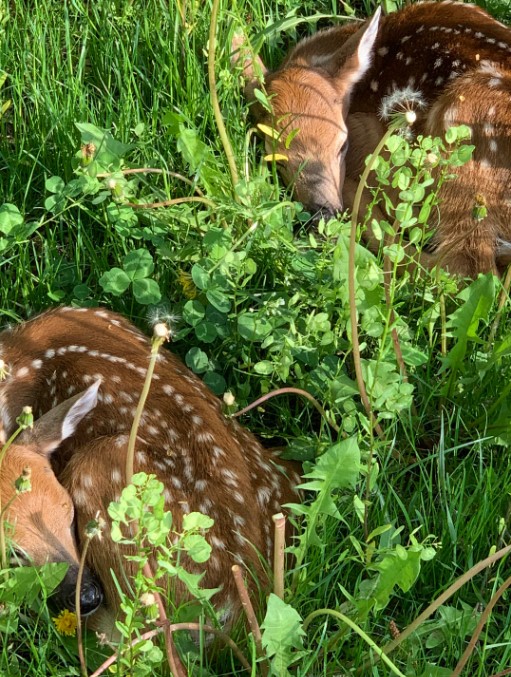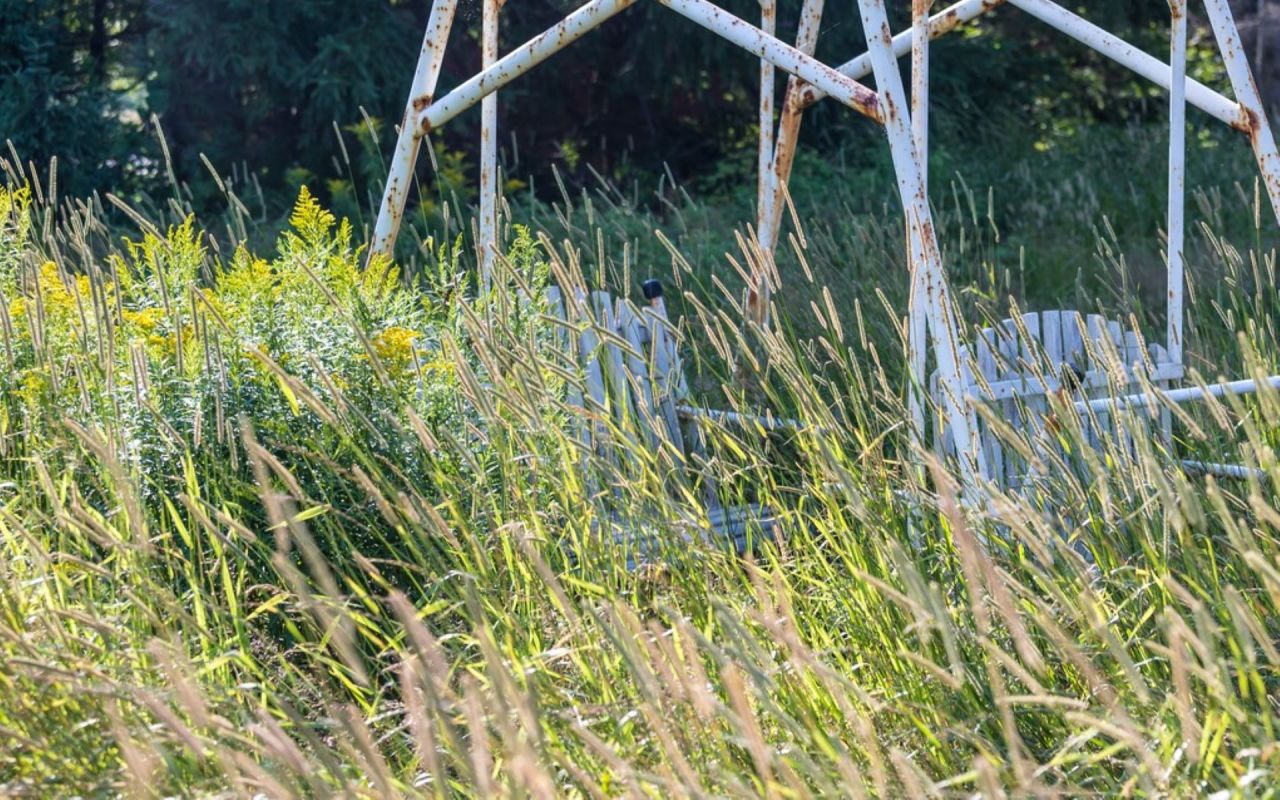The benefits of letting your grass grow are numerous, and unexpected visitors can be the best byproduct.
A Redditor shared what happened when they left their lawnmower to hibernate in the spring.
"I did No Mow May as a first-time home owner," they wrote, "and a mama deer hid her fawns on our front lawn until they were ready to walk!"

A day later, the fawns took their first steps in the wild yard. "It was surreal honestly," the poster added.
"This is soooo wholesome!" one user wrote. "I'm fawning over it!"
Another said: "Just precious."
Spying wildlife in your backyard is exciting, and the animals can range from a blue caterpillar and vampire-escaping bunnies to a fox and a pine marten. These critters are likely just as excited to have found a place to munch, hide, curl up for a nap in the sunshine, or go after birds in the low limb of a tree.
Turf grass covers 2% of the United States and is the largest irrigated crop in the country. That water usage plus (often gas-powered) mowing, trimming, and blowing as well as the deployment of fertilizers and other chemicals comes with a cost to the environment and human health.
"Lawns provide little benefit to wildlife, and are often harmful. Grass-only lawns lack floral resources and nesting sites for bees and are often treated with pesticides that harm bees and other invertebrates," according to Bee City USA. "... Mowing less creates habitat and can increase the abundance and diversity of wildlife including bees and other pollinators."
Native greenspaces boast these biodiversity and environmental benefits, and they also require less water and maintenance, leading to a heftier pocketbook.
A lawn of native plants, however, is even more beneficial than a no-mow or low-mow yard. These natural landscapes are more adept at surviving extreme weather, and they support local wildlife. Using fewer chemicals can improve pest and disease resistance and soil health in addition to helping with the sequestration of carbon.
"If that's [not] evidence of how much nature needs us to make more ecologically sound choices, I don't know what is," a commenter said of the fawns. "Any chance you'll skip mowing forever?"
The poster responded: "It sure is tempting! I do have plans to eliminate the majority of my grass and replace with native plantings. I'm working on a large flower meadow in my backyard for pollinators this year, and maybe next year will be the front!"
Join our free newsletter for easy tips to save more, waste less, and help yourself while helping the planet.









